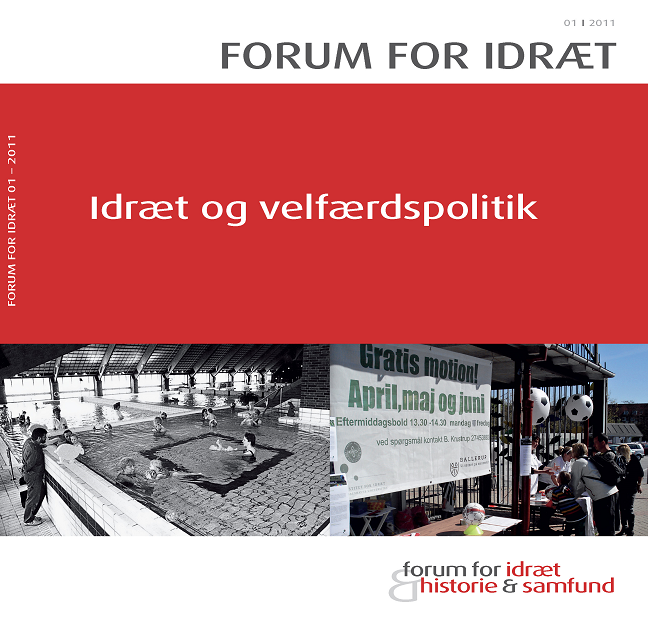Vores by - mellem vækst og velfærd. Om de (re)kreative planlægningstanker bag Carlsbergbyen
DOI:
https://doi.org/10.7146/ffi.v27i1.31616Keywords:
byplanlægning, velfærd, rekreativ, samfundsidealer, ulighed, analyseAbstract
Artiklen har til formål at kaste et kritisk blik på byplanlægningstanker, bl.a. med udgangspunkt i Carlsbergbyen. Disse tanker analyseres i forhold til aktuelle samfundsidealer, og det diskuteres, om de er ulighedsskabende set i et velfærdsperspektiv.
The article »Our City – between economic growth and social welfare« deals with physical recreational activity in regard to urban planning. A specific planning site in Copenhagen, »Carlsbergbyen« in Valby is picked out to exemplify contemporary dominating thoughts of planning. In the early planning process, »Carlsbergbyen « was called »Our City« referring to the Carlsberg slogan: »Our Beer«. But seen from a critical perspective it can also refer to »Our City« in contrast to »Their City« – and »Our City« in this matter is the city for The Creative Class. A city that facilitates flexible and multifunctional urban spaces, and that is in particular when it comes to recreational activity. The question asked here is what the social consequences are if contemporary urban planning is dominated by The Creative Class. The question is what mechanisms of social exclusion are at stake? To answer this question the article talks about new paradigms of urban planning, new ways of social distinction and in particular new tendencies of physical recreational activities. The aim of the article is to present a critical perspective that focuses on mechanisms of social exclusion, and hereby call for thoughts of reflection when it comes to the ease with which a term like »Our City« seems to be used in the planning process of »Carlsbergbyen«.
Downloads
Published
How to Cite
Issue
Section
License
Forfattere, der publicerer deres værker via dette tidsskrift, accepterer følgende vilkår:
- Forfattere bevarer deres ophavsret og giver tidsskriftet ret til første publicering, samtidigt med at værket er omfattet af en Creative Commons Attribution-licens, der giver andre ret til at dele værket med en anerkendelse af værkets forfatter og første publicering i nærværende tidsskrift.
- Forfattere kan indgå flere separate kontraktlige aftaler om ikke-eksklusiv distribution af tidsskriftets publicerede version af værket (f.eks. sende det til et institutionslager eller udgive det i en bog), med en anerkendelse af værkets første publicering i nærværende tidsskrift.
- Forfattere har ret til og opfordres til at publicere deres værker online (f.eks. i institutionslagre eller på deres websted) forud for og under manuskriptprocessen, da dette kan føre til produktive udvekslinger, samt tidligere og større citater fra publicerede værker (se The Effect of Open Access).





